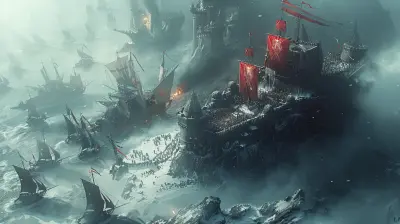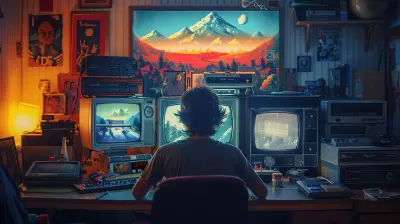The Evolution of Board Games: From Classics to Modern Creations
19 October 2025
Let’s face it—board games have come a long way since the days of dice, pawns, and squares on a cardboard grid. Whether you're a Monopoly master or a Settlers of Catan strategist, you’ve probably noticed how drastically board games have changed over the years. But how did we get from ancient war simulations to cooperative space odysseys and deck-building dungeon crawls?
Let’s take a walk down memory lane (and into the future) to unpack the evolution of board games—from the simple and nostalgic classics to the bold, imaginative creations of today.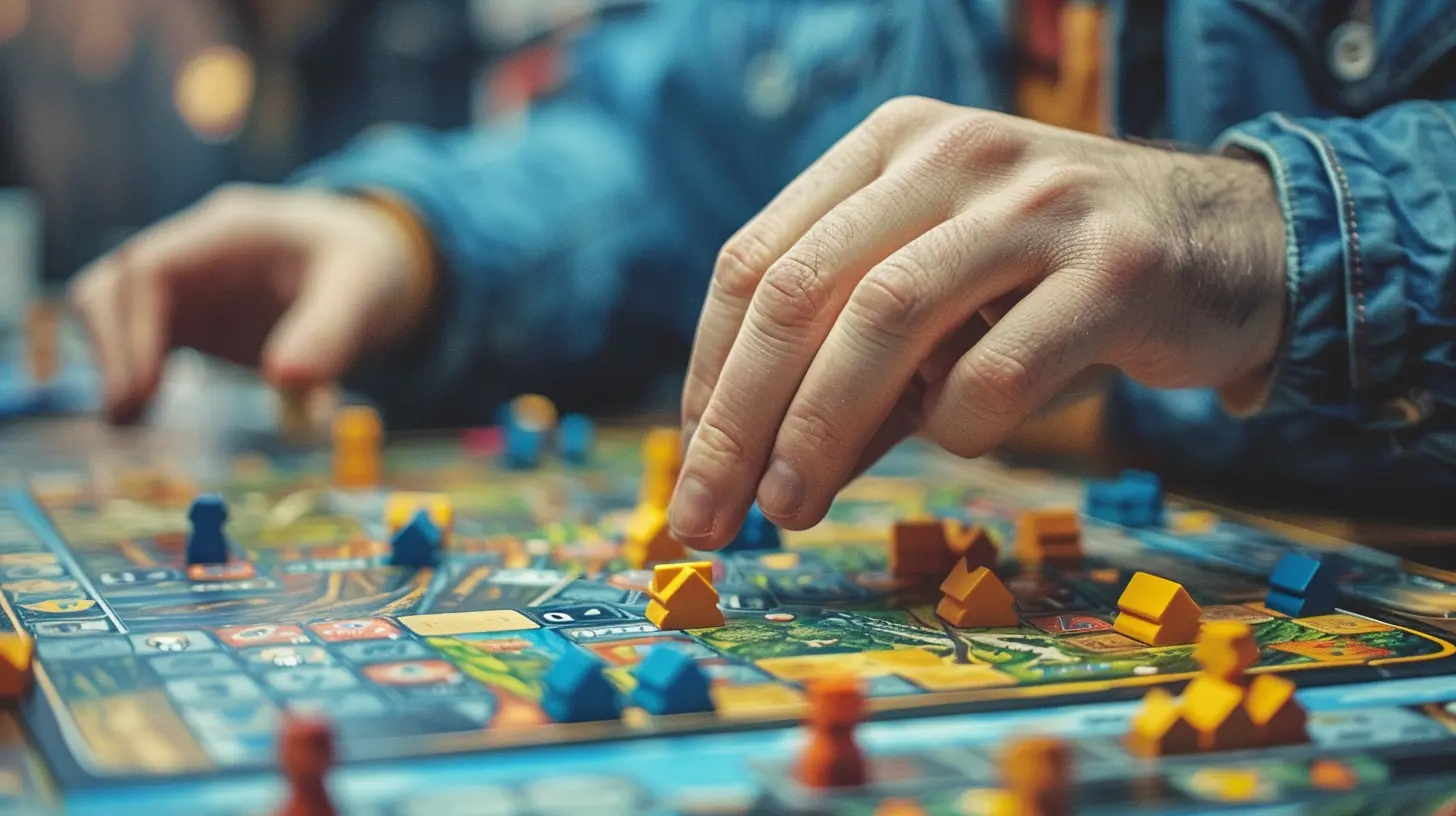
The Ancient Origins of Board Games
Did you know that people have been playing board games for thousands of years? We’re talking about long before video games, smartphones, or even paper. The earliest board games date back to ancient civilizations like Mesopotamia and Egypt.Senet and the Royal Game of Ur
Senet, played as early as 3100 BCE in Egypt, was more than fun and games. It had deep religious significance and was believed to represent the journey to the afterlife. Another early game, the Royal Game of Ur, came from Mesopotamia and showed that even ancient people loved a good strategy challenge.These games were usually made of wood, stone, or clay, and were as much about fate and chance as they were about outsmarting your opponent. Think of them as the great-great-grandparents of the games we have today.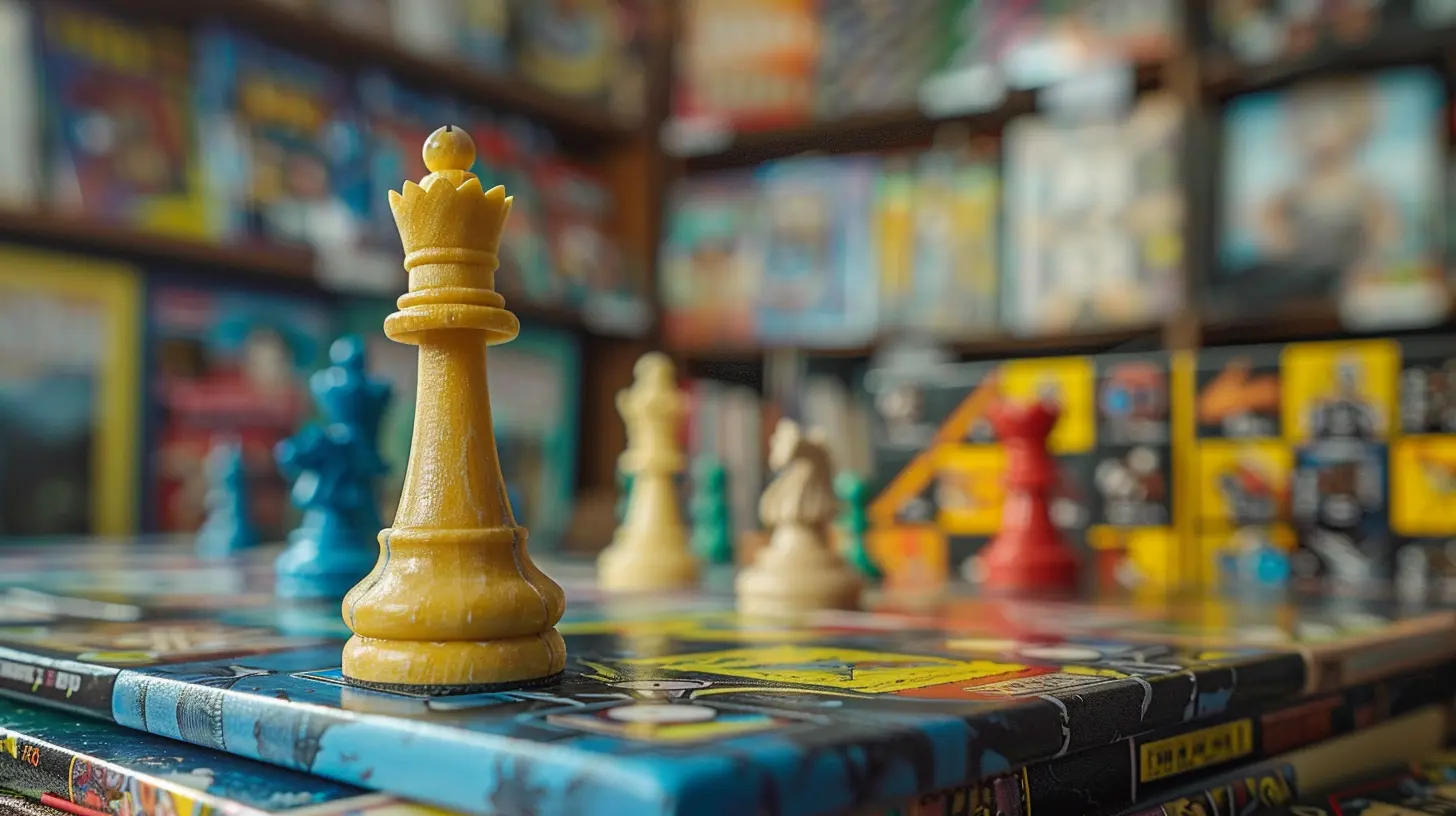
The Rise of Classic Board Games
Fast forward a few thousand years, and board games started becoming household staples. If you're picturing a colorful cardboard board, plastic tokens, and the unforgettable smell of a new game box—you're thinking of the classics.Chess and Backgammon: Strategic Staples
Chess is the king of strategic board games—pun totally intended. Emerging from India around the 6th century as Chaturanga, chess spread across the globe and evolved into the version we know today. It’s not just a game; it’s an art, a science, and a test of mental endurance.Backgammon, on the other hand, leaned more into luck and basic tactics. It's one of the oldest games still played today and combines both randomness and strategy in a way that’s still deeply engaging.
Monopoly, Scrabble, and Risk: The Golden Age Icons
In the 20th century, during the Great Depression and post-war boom, board games became a beacon of social entertainment. Monopoly debuted in the 1930s and quickly became a family favorite. Who doesn’t remember flipping the board in frustration or celebrating a Park Place hotel empire?Scrabble brought the word nerds to the table, while Risk introduced the thrill of world domination. These games were competitive, replayable, and easy to learn—three ingredients for mass appeal.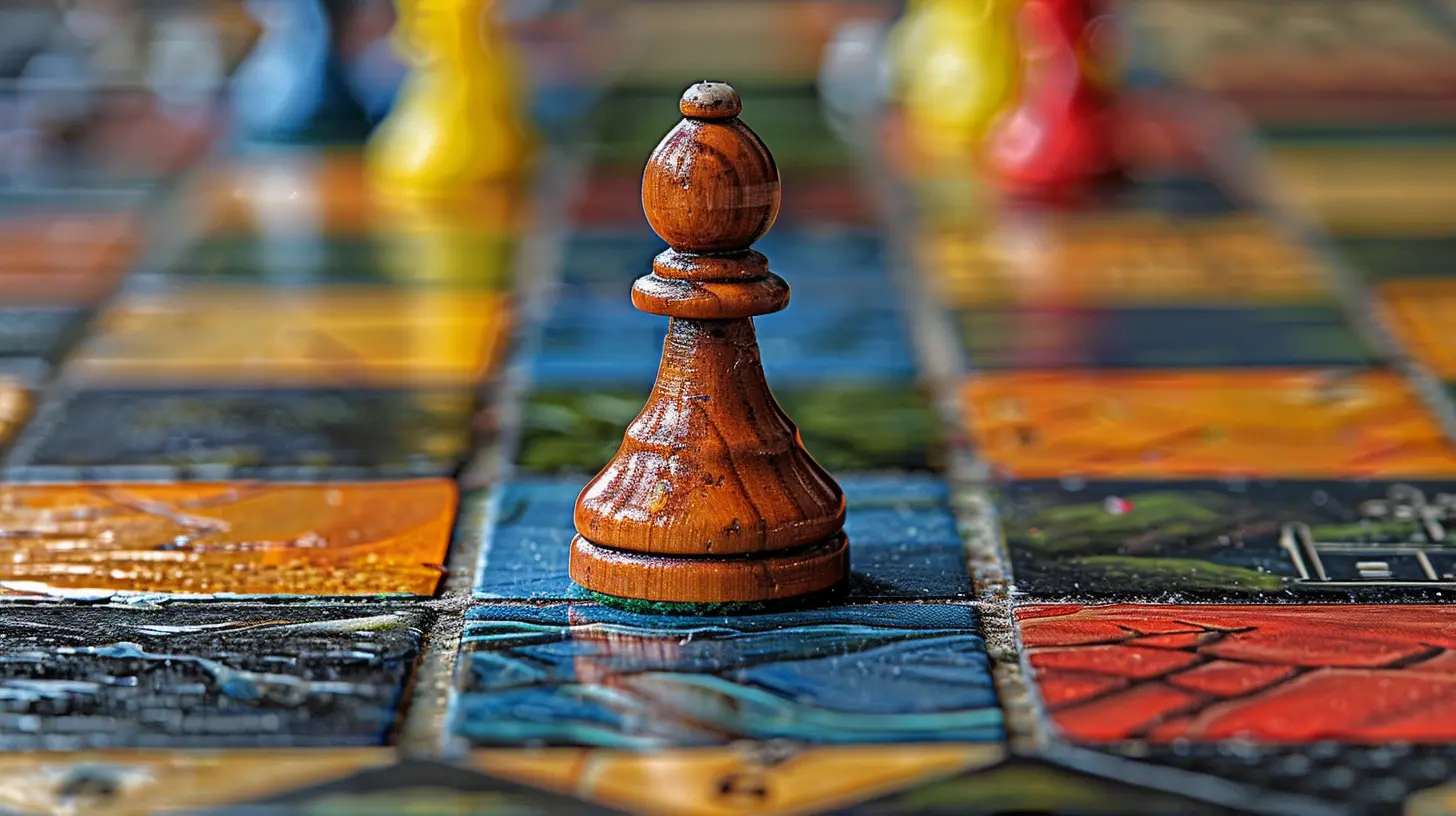
The Boom of Modern Board Gaming
Enter the 21st century, where board games aren't just surviving—they’re thriving. In fact, we’re in what many call a “Golden Age of Board Games.” But what changed? Why are more people than ever gathering around coffee tables with dice and meeples?Eurogames: The Strategy Renaissance
You can’t talk about modern board games without mentioning Eurogames. Titles like Catan (formerly Settlers of Catan), Ticket to Ride, and Carcassonne sparked a revolution in the '90s and 2000s.What makes Eurogames different? They often focus on resource management, indirect competition, and strategic planning. No more player elimination or luck-based chaos—instead, you get a fair playing field where the smartest tactician wins.
Catan, for example, isn’t just about building settlements. It’s about negotiating, trading, and outwitting your friends. And trust me, it can get intense.
Cooperative Play: Together Against the Game
Ever get tired of your friends ganging up on you in Risk? You’re not alone, and that’s why cooperative games like Pandemic and Forbidden Island gained popularity. In these games, you work together against the board—trying to stop global disease outbreaks or escape from sinking islands.It’s team-building, it’s intense, and it’s a breath of fresh air from the “every player for themselves” model.
Legacy Games: A Story That Sticks
One of the coolest innovations in board games is the legacy format. Games like Gloomhaven, Pandemic Legacy, and Betrayal Legacy offer a campaign-style experience where each playthrough impacts the next. You’ll tear up cards, add new rules, and watch the game world evolve as you play.It’s a storytelling rollercoaster, where your decisions have long-term consequences. For players who love immersion and continuity, legacy games are a dream come true.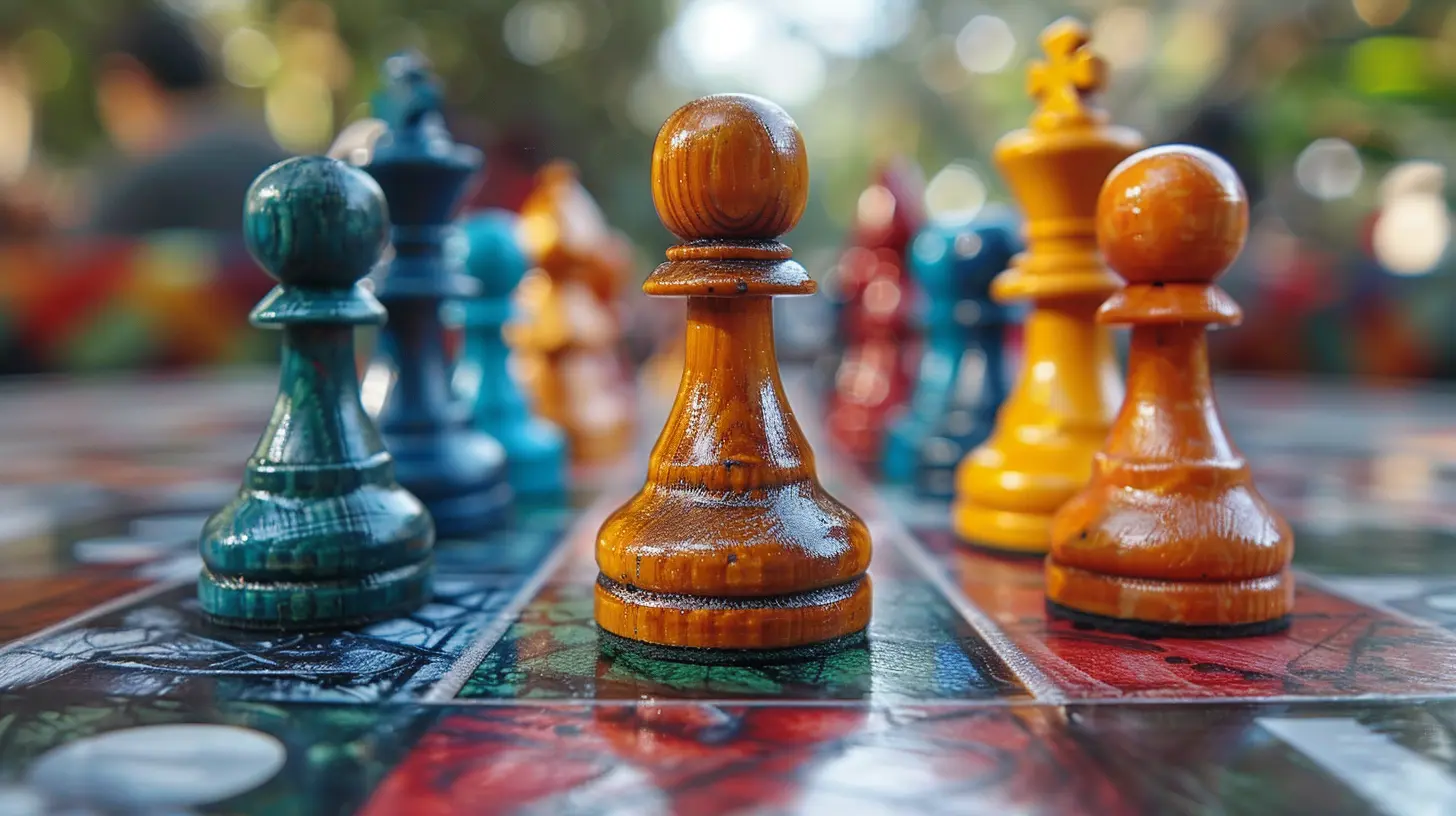
Board Games Go Digital
Now we’re entering hybrid territory. The lines between board games and video games are getting blurrier by the day—and it’s kind of amazing.App-Assisted Games
Games like Mansions of Madness, Chronicles of Crime, and Descent have embraced digital companions. These apps handle bookkeeping, narrate story events, and even control enemy AI. This mix of physical and digital elements gives you a cinematic board game experience without needing a game master or a calculator.Online Board Gaming Platforms
Can’t meet in person? No problem. Thanks to platforms like Tabletop Simulator, Board Game Arena, and Tabletopia, you can play almost any board game online with friends worldwide. These digital versions are especially handy during game nights when your buddy in another state wants to join the fun.Why Board Games Are More Popular Than Ever
Here’s the million-dollar question—why are board games booming when we have smartphones, streaming, and VR headsets? The answer is actually pretty heartwarming.Social Connection
Board games give us a reason to gather, unplug, and engage with each other in a meaningful way. Whether it's laughing over a ridiculous game of Exploding Kittens or battling it out in Twilight Struggle, board games create moments.Creativity and Innovation
Modern game designers are like chefs—constantly cooking up new combinations of mechanics, themes, and experiences. You’ve got games about running a bakery, surviving Mars, or even stealing treasures as anthropomorphic raccoons. There’s truly something for everyone.The Collector’s Appeal
Let’s be honest, the art and components in modern board games are just stunning. From hand-painted miniatures to deluxe wooden tokens, games have become collectible. Some players get as much joy setting up and admiring their game as actually playing it.The Future of Board Gaming
So what’s next? If the last decade is any indication, we're in for even more innovation. Think augmented reality games, AI-driven story generators, and even more hybrid board/video game experiences.Game publishers are also paying more attention to inclusivity, sustainability, and community-driven content. Kickstarter, for instance, has become a major platform for fresh game ideas that would never see the light of day in traditional publishing.
And let’s not forget solo gaming. With more games offering compelling one-player modes, you can now enjoy a strategy-packed evening without needing a group.
Wrapping It All Up
Board games have evolved from ancient tools for teaching and ritual to full-blown artistic and social experiences. Whether you’re into the timeless charm of chess, the cutthroat deals of Monopoly, or the deep storytelling of legacy campaigns, there's never been a better time to be a board gamer.From ancient Egypt to your local game café, board games have stood the test of time—and they’re only getting better. So the next time someone suggests a game night, say yes. You might just find a new favorite, make a lasting memory, or at the very least, enjoy a few hours away from your screen.
Happy gaming!
all images in this post were generated using AI tools
Category:
Board GamesAuthor:

Avril McDowney
Discussion
rate this article
1 comments
Layla Porter
Great overview! Love how you highlighted today's innovative designs.
October 30, 2025 at 3:52 AM

Avril McDowney
Thank you! I'm glad you enjoyed it and appreciated the focus on innovation in design!

